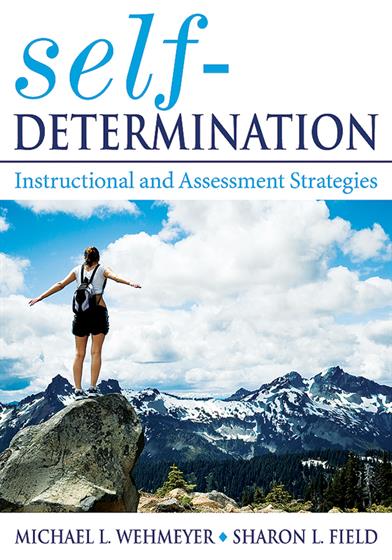Preface
Acknowledgements
About the Authors
1. Self-Determination: What Is It and Why Is It Important to Students With Disabilities?
Self-Determination: What Is It?
A Functional Model of Self-Determination
A Five-Step Model of Self-Determination
Self-Determination: Why Is It Important to Students With Disabilities?
Impact of Promoting Component Elements of Self-Determined Behavior
Impact of Promoting Self-Determination
2. Self-Determination in the Era of Standards-Based Reform
Promoting Self-Determination in the General Education Curriculum
Self-Determination Content in General Education Standards
Self-Determination and Curriculum Modifications
Infusing Instruction Into the General Education Curriculum Planning
Curriculum Content
3. Educational Planning and Student Involvement
IEP Planning, Access to the General Education Curriculum, and Self-Determination
Supplementary Aids and Services
Specially Designed Instruction
Other Educational Needs
Self-Advocacy and Student Involvement in Educational Planning
Promoting Self-Advocacy
Student Involvement in Educational Planning
4. Schoolwide and Classroom Ecological Interventions
Quality Indicators of Programmatic Efforts
Quality Indicator #1: Knowledge, Skills, and Attitudes for Self-Determination Are Addressed in the Curriculum, in Family Support Programs, and in Staff Development
Quality Indicator #2: Students, Parents, and Staff Are Involved Participants in Individualized Educational Decision Making and Planning
Quality Indicator #3: Students, Families, Faculty, and Staff Are Provided With Opportunities for Choice
Quality Indicator #4: Students, Families, Faculty and Staff Are Encouraged to Take Appropriate Risks
Quality Indicator #5: Supportive Relationsips Are Encouraged
Quality Indicator #6: Accommodations and Supports for Individual Needs Are Provided
Quality Indicator #7: Students, Families, and Staff Have the Opportunity to Express Themselves and Be Understood
Quality Indicator #8: Consequences for Actions Are Predictable
Quality Indicator #9: Self-Determination Is Modeled Throughout the School Environment
5. Teacher-Directed Instructional Strategies
Learning Process Strategies
Modeling and Mentors
Cooperative Learning Groups
Coaching
Behavioral Strategies
Teaching Component Elements of Self-Determined Behavior
Teaching Goal Setting and Attainment
Teaching Problem Solving
Teaching Decision Making
Fostering Self-Awareness and Self-Knowledge
Promoting Choice Making
Attribution Retraining
Curricular Materials
6. Student-Directed Learning and Peer-Mediated Instructional Strategies
Student-Directed Learning Strategies
Antecedent Cue Regulation
Self-Monitoring, Self-Evaluation, and Self-Reinforcement
Self-Instruction
Multiple Strategy Use
The Self-Determined Learning Model of Instruction
Peer-Mediated Learning Strategies
7. Assessing Student Needs and and Evaluation Program
Assessing Instructional Needs in Self-Determination
The Arc's Self-Determination Scale
Self-Determination Assessment Battery
The AIR Self-Determination Scale
Program Evaluation
Empowerment Evaluation
8. Family Support for Self-Determination
How Families Impact Student Self-Determination
Strategies and Resouces to Help Family Members Learn About Self-Determination
Family Support for Self-Determination: Tips and Tools
Sharing Stories About Self-Determination
Making the Most of Teachable Moments
Providing a Positive Role Model of Self-Determination
9. Nurturing the Self-Determination of Teachers
What Do Educators Need to Know to Be Self-Determined in Their Work?
What Can Teachers Do to Build and Nurture Their Self-Determination?
Resource A. Self Determination Quality Indicators Assessment Tool
Resource B. The Arc's Self-Determination Scale
References
Index




